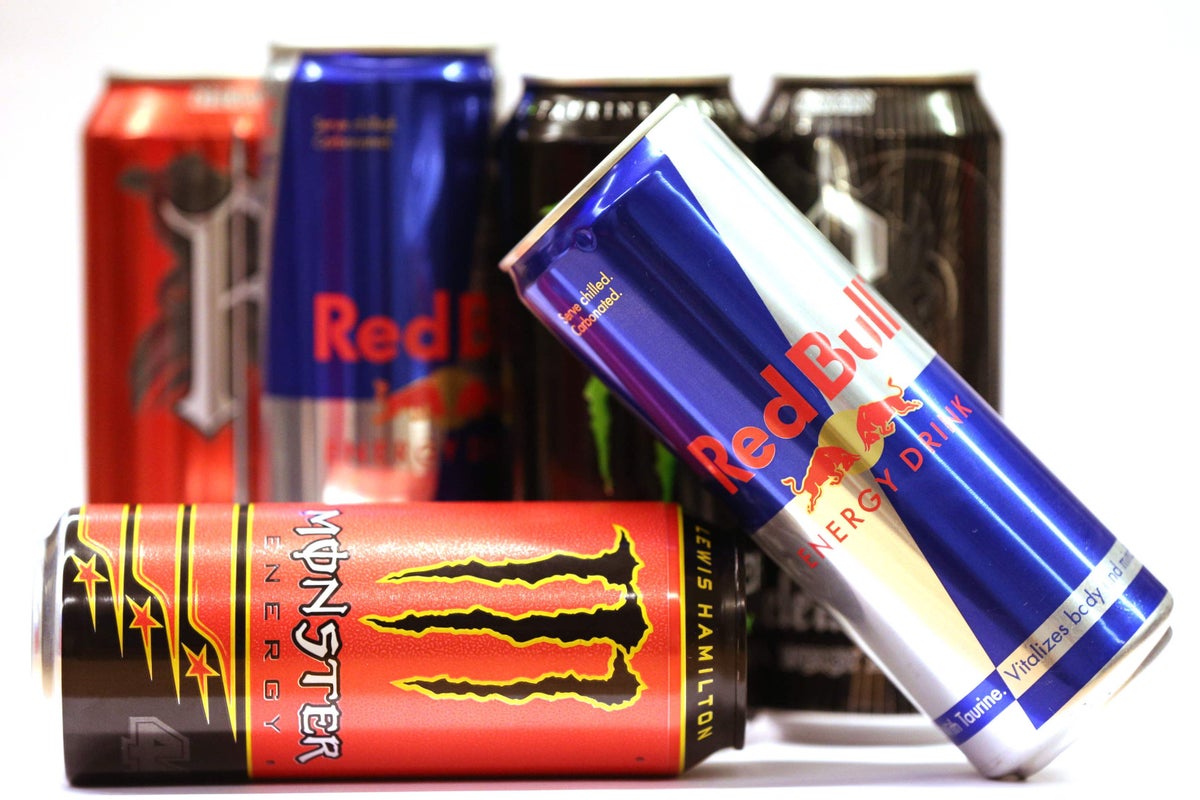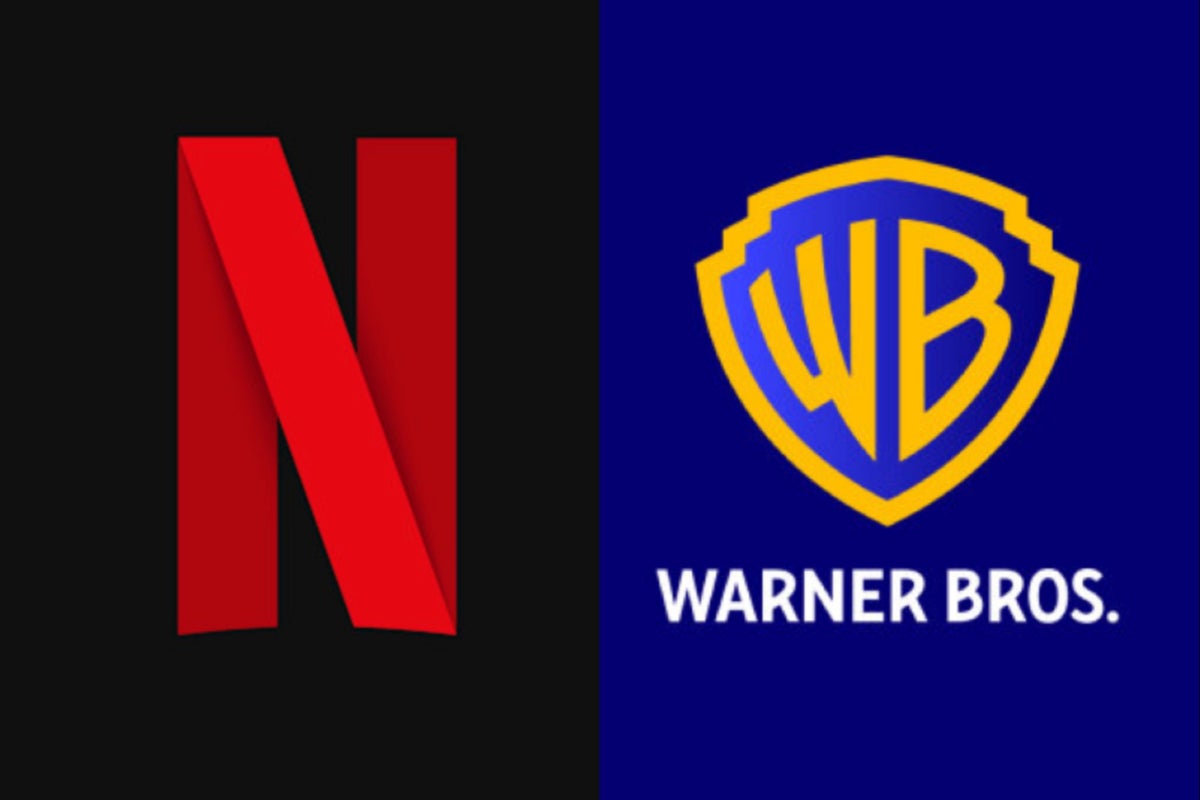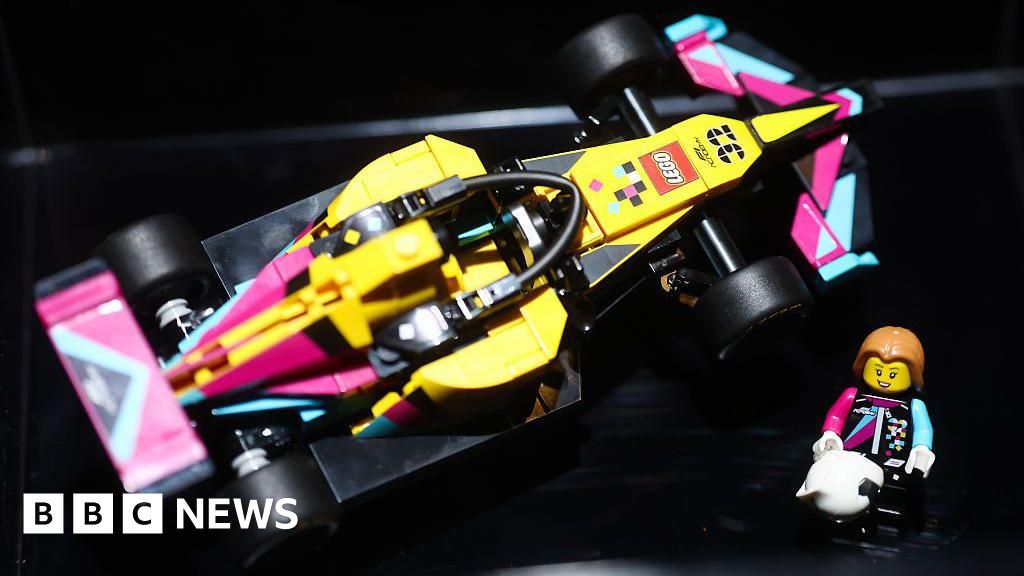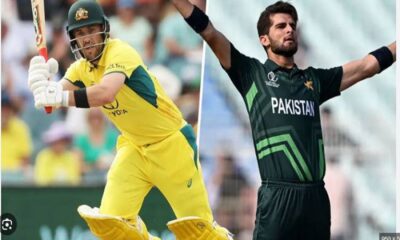Business
High-caffeine energy drinks to be banned for under-16s in England – Streeting

High-caffeine energy drinks will be banned for under-16s in England to prevent harm to children’s health, the Government has said.
The plan will make it illegal to sell energy drinks containing more than 150mg of caffeine per litre to anyone under 16 across all retailers, including online, in shops, restaurants, cafes and vending machines.
Lower-caffeine soft drinks – such as Coca‑Cola, Coca‑Cola Zero, Diet Coke and Pepsi – are not affected, and neither are tea and coffee.
However, high-caffeine energy drinks such as Red Bull, Monster, Relentless and Prime would all breach the limit.
Major supermarkets including Tesco, Sainsbury’s, Waitrose, Morrisons and Asda have already stopped sales of the drinks to youngsters, but the Department of Health said research suggests some smaller convenience stores are still selling them to children.
According to ministers, a ban could prevent obesity in up to 40,000 children and will help prevent issues such as disrupted sleep, increased anxiety and lack of concentration, as well as poorer school results.
Around 100,000 children are thought to consume at least one high-caffeine energy drink every day.
Health and Social Care Secretary Wes Streeting said: “How can we expect children to do well at school if they have the equivalent of a double espresso in their system on a daily basis?
“Energy drinks might seem harmless, but the sleep, concentration and wellbeing of today’s kids are all being impacted while high sugar versions damage their teeth and contribute to obesity.
“As part of our plan for change and shift from treatment to prevention, we’re acting on the concerns of parents and teachers and tackling the root causes of poor health and educational attainment head on.
“By preventing shops from selling these drinks to kids, we’re helping build the foundations for healthier and happier generations to come.”
A newly-launched consultation will now run for 12 weeks to gather evidence from experts in health and education as well as retailers, manufacturers, local enforcement leaders and the public.
Drinks containing more than 150mg of caffeine per litre must already carry warning labels stating they are not recommended for children.
Gavin Partington, director general of the British Soft Drinks Association, said firms do not market or promote the drinks to under-16s.
He added: “Our members have led the way in self-regulation through our long-standing energy drinks code of practice.
“Our members do not market or promote the sale of energy drinks to under-16s and label all high-caffeine beverages as ‘not recommended for children’, in line with and in the spirit of this code.
“As with all Government policy, it’s essential that any forthcoming regulation is based on a rigorous assessment of the evidence that’s available.”
According to the Department of Health, up to one in three children aged 13 to 16, and nearly a quarter of children aged 11 to 12, consume one or more high-caffeine energy drink every week.
Education Secretary Bridget Phillipson said: “This Government inherited a scourge of poor classroom behaviour that undermines the learning of too many children – partly driven by the harmful effects of caffeine-loaded drinks – and today’s announcement is another step forward in addressing that legacy.”
Professor Steve Turner, president of the Royal College of Paediatrics and Child Health, said: “Paediatricians are very clear that children or teenagers do not need energy drinks.
“Young people get their energy from sleep, a healthy balanced diet, regular exercise and meaningful connection with family and friends.
“There’s no evidence that caffeine or other stimulants in these products offer any nutritional or developmental benefit, in fact growing research points to serious risks for behaviour and mental health.
“Banning the sale of these products to under-16s is the next logical step in making the diet of our nation’s children more healthy.”
Carrera, from the youth-led group Bite Back, which campaigns for changes to the way unhealthy foods are made, marketed and sold, said: “Energy drinks have become the social currency of the playground – cheap, brightly packaged, and easier to buy than water.
“They’re aggressively marketed to us, especially online, despite serious health risks.
“We feel pressured to drink them, especially during exam season, when stress is high and healthier options are hard to find.
“This ban is a step in the right direction, but bold action on marketing and access must follow.”
Amelia Lake, professor of public health nutrition at Teesside University, said: “Our research has shown the significant mental and physical health consequences of children drinking energy drinks.
“We have reviewed evidence from around the world and have shown that these drinks have no place in the diets of children.”
Barbara Crowther, of the Children’s Food Campaign at Sustain, an alliance of food, farming and health organisations, said the drinks were “branded and marketed to appeal to young people through sports and influencers, and far too easily purchased by children in shops, cafes and vending machines”.
Professor Tracy Daszkiewicz, president of the Faculty of Public Health, said: “Mounting evidence shows us that high-caffeine energy drinks are damaging the health of children across the UK, particularly those from deprived communities who are already at higher risk of obesity and other health issues.
“We welcome this public health intervention to limit access to these drinks and help support the physical and mental wellbeing of our young people.”
James Lowman, chief executive of the Association of Convenience Stores, said: “The majority of convenience stores already have a voluntary age restriction in place on energy drinks, and will welcome the clarity of regulation on this issue.
“Our members have a long-standing track record of enforcing age restricted sales on different products, but it is essential that the Government effectively communicates the details of the ban to consumers to avoid the risk of confrontation in stores.”
Business
Netflix agrees revised all-cash deal for Warner Bros studios

Netflix has significantly increased its all-cash offer to acquire Warner Bros Discovery’s studio and streaming business, intensifying an ongoing takeover battle with rival Paramount Skydance.
The revised bid aims to secure Warner Bros’ extensive film and television library, alongside its premium HBO Max streaming service, in a move that could reshape the entertainment landscape.
In December, Netflix agreed to pay $23.25 in cash, $4.50 (£3.35) worth of Netflix stock per share to buy Warner Bros assets.
The deal valued the business at around $82.7bn (£61.5 bn). However, shares in Netflix have dropped by almost 15 per cent since the deal was first announced.
The US-based streaming giant has said it will now offer $27.75 (£20.64) per share in cash to buy the business, which will include Warner Bros’ extensive library of film and TV rights, as well as its HBO Max streaming service.
Analysts have said the new terms are favourable for investors in Warner Bros Discovery.
Despite the improved financial terms, Warner Bros Discovery continues to back Netflix over a competing bid from Paramount Skydance.
The rival studios and media giant had put forward an offer of $30 per share in cash, but crucially, this was for the entire Warner Bros Discovery company, rather than just its studio and streaming divisions, highlighting a key difference in the acquisition strategies.
David Zaslav, president and chief executive of Warner Bros Discovery, expressed his enthusiasm for the impending merger.
He stated: “Today’s revised merger agreement brings us even closer to combining two of the greatest storytelling companies in the world and with it even more people enjoying the entertainment they love to watch the most. By coming together with Netflix, we will combine the stories Warner Bros has told that have captured the world’s attention for more than a century and ensure audiences continue to enjoy them for generations to come.”

Greg Peters, Netflix’s co-chief executive, underscored the strategic and financial benefits of the amended agreement.
He commented: “By amending our agreement today, we are underscoring what we have believed all along: not only does our transaction provide superior stockholder value, it is also fundamentally pro-consumer, pro-innovation, pro-creator and pro-growth. Our revised all-cash agreement demonstrates our commitment to the transaction with Warner Bros and provides WBD stockholders with an accelerated process and the financial certainty of cash consideration, while maintaining our commitment to a healthy balance sheet and our solid investment grade ratings.”
The agreed deal is contingent on Warner Bros Discovery completing a proposed spin-off of its cable channels, which include CNN, TBS, and TNT Sports in the UK.
Business
Toy sellers’ keep close watch on under 16s social media ban

Kevin PeacheyCost of living correspondent
 Getty Images
Getty ImagesUK toy sales have risen for the first time in five years, but sellers are braced for the potential impact of any social media ban for under-16s.
The value of toy sales rose by 6% last year, compared with the previous year, according to research company Circana, bringing some much-needed cheer for a sector that has struggled since the pandemic.
The rebound has been driven by the so-called kidult market – which relates to players over the age of 12, some of whom are influenced by trends on social media.
But experts gathered at the annual Toy Fair in London on Tuesday said that films, video games and playground chat could still help push further growth in 2026.
Cost of living pressures have loomed over families in recent years, although spending on children – particularly at Christmas – has remained a priority for many.
Covid lockdowns brought a boost to the sector when toys and games became central to keeping children and adults entertained at home.
Sales dipped since then, until last year when the number of toys sold rose by 1% compared with 2024, according to Circana.
With kidults spending more, the value of sales rose by 6% – the first increase since 2020, according to Circana. It valued the UK market at £3.9bn last year.
Melissa Symonds, executive director of UK toys at Circana, described last year as a “clear turning point” for the sector.
Cinema, streaming, video game and sport tie-ins – such as Minecraft and Formula 1 – all proved successful.
Symonds said that excluding the unusual circumstances of the pandemic, last year recorded the first organic growth since 2016.
Social media trends
Kidults accounted for 17% of the toy market in 2016, but this had risen to 30% by last year.
Building sets, predominantly Lego, has appealed to adults, but trends amplified on social media have also led to a 12% growth in collectibles across generations. Pokémon, K-Pop Demon Hunters, and Hello Kitty have all proved to be “market-moving trends”, according to Circana.
Symonds said the industry would be considering the impact of the social media ban for under-16s in Australia, and the potential for a similar ban in the UK.
She said manufacturers and retailers may need to reconsider how some of these toys were marketed if bans were brought in more widely.
Kerri Atherton, from the British Toy and Hobby Association – which is hosting its annual trade fair at London’s Olympia, said it was still too early to know what the fallout would be.
She described 2025 as a pivotal moment for the UK toy sector, but said businesses and consumers still faced financial challenges going into 2026.
Business
Bank of England must ‘be very alert’ to Trump tensions, says governor

The governor of the Bank of England has said the central bank has “to be very alert” to the potential impact from heightened geopolitical tensions as President Donald Trump seeks to seize control of Greenland.
Andrew Bailey told MPs at Parliament’s Treasury Committee that the tensions would have consequences for global financial stability.
However, he highlighted that the Bank believes global financial markets have been “more muted” in response to Mr Trump’s plans and his threats to hit opposing countries with tariffs.
Earlier this week, the President said the UK and other countries pushing back would face 10% tariffs on all products from next month, with this to increase to 25% from June 1, until a deal is reached for Washington to purchase Greenland.
On Tuesday, Mr Bailey said: “The level of geopolitical uncertainty and geopolitical issues is a big consideration because they can have financial stability consequences.
“Let me put that in a bit of context in two respects. One, having said that, growth in the world economy was a lot more stable than we thought it would be.
“The second point is about financial markets and is a fairly similar point, that we worry considerably about how markets react to those things.
“Market reactions have actually been more muted than we would have feared and expected.
“Overriding those points, I take neither of those as a point of assurance. We have to be very alert to these things.”
Financial markets have been weaker so far this week as investors and traders digest Mr Trump’s tariff threats, which would cause further trade disruption.
The FTSE 100 Index dropped by around 120 points soon after opening on Tuesday, falling by 1.2% to 10,075 points.
This followed a 0.4% fall on Monday while Germany’s Dax and France’s Cac 40 also slid in value.
-

 Tech1 week ago
Tech1 week agoNew Proposed Legislation Would Let Self-Driving Cars Operate in New York State
-

 Entertainment7 days ago
Entertainment7 days agoX (formerly Twitter) recovers after brief global outage affects thousands
-

 Sports5 days ago
Sports5 days agoPak-Australia T20 series tickets sale to begin tomorrow – SUCH TV
-

 Business4 days ago
Business4 days agoTrump’s proposed ban on buying single-family homes introduces uncertainty for family offices
-

 Fashion3 days ago
Fashion3 days agoBangladesh, Nepal agree to fast-track proposed PTA
-

 Tech5 days ago
Tech5 days agoMeta’s Layoffs Leave Supernatural Fitness Users in Mourning
-

 Politics3 days ago
Politics3 days agoSaudi King Salman leaves hospital after medical tests
-

 Tech6 days ago
Tech6 days agoTwo Thinking Machines Lab Cofounders Are Leaving to Rejoin OpenAI






